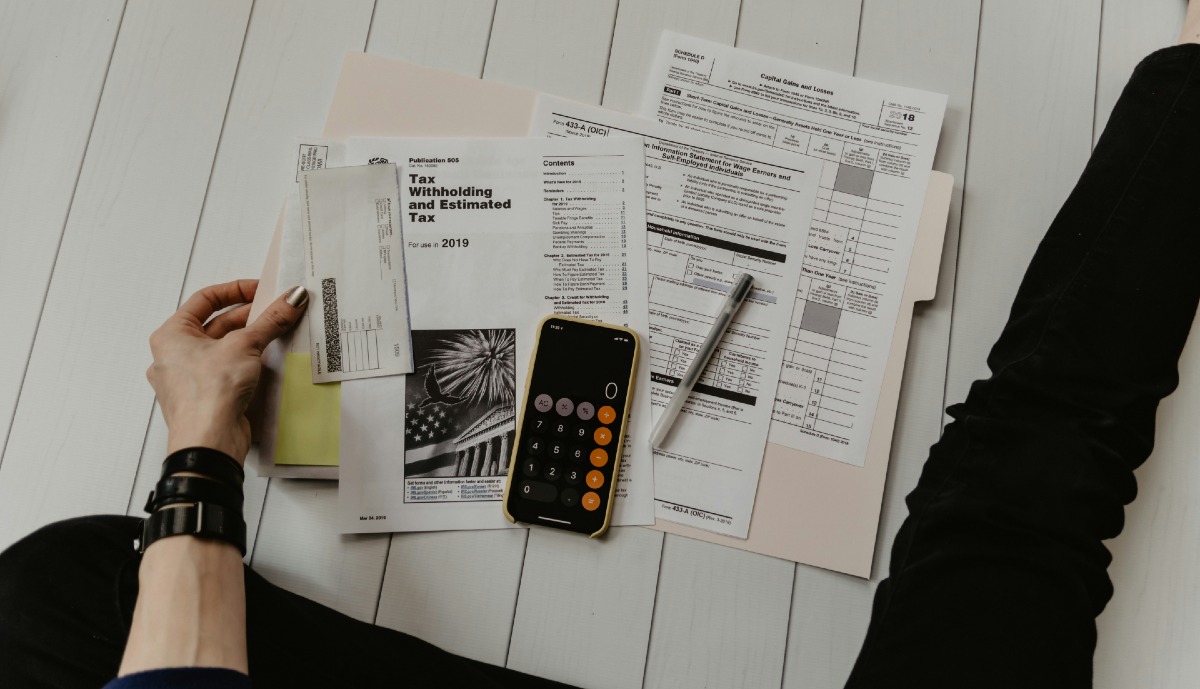Tax can be confusing for someone simply working one job with no other income, let alone an investor with multiple rental incomes.
However, being on top of what you can and can’t claim could potentially put thousands in your back pocket, making your investment far more profitable.
Mike Mortlock, Managing Director of MCG Quantity Surveyors, told Savings.com.au property investors could potentially miss out on thousands by not claiming appropriately.
“Of the people that seek us out for a tax depreciation schedule, we found that 6.7% of them left it so long that they missed on average $20,537,” Mr Mortlock said.
“To clarify here, you can back claim two financial years, so we’re talking about people that have missed in excess of those two years.
“Depending on your marginal rate, that could be $6,000 to $8,000 gone from your back pocket. The average depreciation deductions we find for property investors in the first full year of claim is currently $9,249.52.”
Mr Mortlock also said hiring a quantity surveyor was not typically only a legal requirement, but also a way to ensure you’re not paying too much tax.
Property and tax: Key considerations
When it comes to property investment and tax, the main areas of concern are:
- Rental income
- Negative gearing
- The interest portion of loans
- Tax depreciation
- Property management and borrowing fees
- Repairs and maintenance works
Rental income
According to the Australian Taxation Office (ATO), any rental income you receive over the financial year must be included in your assessable taxable income. This is so it can be assessed in your tax return and consequently be taxed with any other income you may have, like your salary.
To use an example, if you earned $65,000 in salary and another $15,000 in rental income (before deductions), your taxable income would be $80,000. Assuming you had no other taxable income or deductions, you’d pay $17,547 in tax.
See how rental income is taxed for more info.
Negative Gearing
Negative gearing is a term that gets thrown around a lot but what does it actually mean?
Negative gearing refers to the situation where you’ve borrowed to invest, but the ongoing costs of the investment exceed the recurring income from it - that is, you’re making a loss.
If you’re negatively geared on a property investment, you can deduct these losses from your taxable income. You don’t make money from negative gearing - it’s simply used to reduce the losses from your investment.
The idea is you wear these losses in the short-term and recoup them in the long-term when you eventually sell the property.
In contrast, positive gearing means the income from your investment property exceeds the costs, such as interest costs on a loan. The main thing to understand about negative gearing is that its usefulness lies in carrying the loss forward to inevitably make a profit.
Read about negative gearing for more info.
The interest portion of loans
According to the ATO:
“If you take out a loan to purchase a rental property, you can claim a deduction for the interest charged on the loan or a portion of the interest. However, the property must be rented out or genuinely available for rent in the income year you claim a deduction.
“If you start to use the property for private purposes, you cannot claim the interest expenses you incur after you start using the property for private purposes.”
Mr Mortlock said this was an area where investors often made mistakes.
“It’s common investors incorrectly claim interest on equity redraws for things like boats, cars, holidays and so on,” he said.
“Only the interest portion of the loan on your investment property is claimable, and if you extend the value of the loan with a redraw, investors need to consider where that money is being spent.
“If it’s not attributable to income-producing property, you can’t claim it as a tax deduction.”
Depreciation
A property’s depreciation can also offer a tax break. Essentially, the ATO allows investors to deduct the decrease in value of a property’s assets - as things age and wear out - from their taxable income, but within reason.
Investors can claim tax deductions on the decline in the building's structure, as well as chattels, which are permanent fixtures to the building, and equipment assets. For example, ovens, carpets, blinds, kitchen cabinets, the list goes on.
If your property was built after 1985, you’ll be required to engage a quantity surveyor to assess your depreciation.
See more about claiming depreciation on property.
Property management fees and borrowing fees
You’re able to deduct property management fees, provided you paid for them and not the tenant. These include:
- Advertising to find new tenants
- Bank fees and loan charges
- Body corporate fees, cleaning costs, and council rates
- Electricity and gas not paid by the tenant
- Home, contents and landlord insurance
- Legal expenses and land tax
- Property manager fees and commission
- Costs incurred for the inspection or maintenance
You can also claim borrowing fees like:
- Loan establishment fees
- Lenders mortgage insurance (if applicable)
- Title search fees
- Mortgage broker fees (if you used one)
- Stamp duty charged on the mortgage
Repairs and maintenance work
All costs of repairs and maintenance work on an investment property are tax deductible. However, there are specific definitions of the two.
The ATO defines repairs as working to make good or remedy defects in, damage to or deterioration of the property. Generally, repairs must relate directly to wear and tear or other damage that occurred as a result of renting out the property.
Some examples repairs are:
- Replacing part of the guttering or windows damaged in a storm
- Replacing part of a fence damaged by a falling tree branch
- Repairing electrical appliances or machinery.
Maintenance refers to work to prevent deterioration or fix existing deterioration, such as;
- Painting a rental property
- Oiling, brushing or cleaning something that is otherwise in good working condition
- Maintaining plumbing.
If the work doesn’t come under these definitions, chances are its an improvement. An improvement is work that:
- Provides something new
- Generally furthers the income-producing ability or expected life of the property
- Generally changes the character of the item you have improved
- Goes beyond just restoring the efficient functioning of the property.
Mr Mortlock said the confusion between repairs and maintenance, and improvements could cause issues for investors.
“Investors are claiming repairs and maintenance at 100% where these items don’t qualify,” he said.
“Firstly, the property needs to be rented at the time of the expense. You can’t do some work to it while you’re living in it ready for the tenants, and then claim that as an expense.
“Secondly, if you’re replacing an asset rather than fixing something already in place, it’s most likely going to be a depreciable asset that needs to be written off over its effective life.”
Expert tips to save on tax when you’re a property investor
Chartered Accountant and Director of Box Advisory Services, David Mach, told Savings.com.au his top tips for maximising your return:
1. Claim more tax deductions on your property
“If you have commercial or investment properties, get a quantity surveyor to work out a depreciation schedule. Then you’ll have a more accurate idea of how much you can claim every year, and save more on tax.”
2. Reduce Tax through Super Contributions
“When contributing company earnings to a super fund, the earnings will be taxed at a lower tax rate, effectively reducing the amount of tax you would’ve had to pay by roughly 12.5%.”
3. Get on top of your bills
“Pre-pay your bills to save on tax such as insurance or rent before 30 June.”
4. Working from home expenses (WFH)
“Despite the ATO announcing a ‘shortcut’ method of 80 cents for each hour you work from home being claimed on WFH expenses, this may not be the best option.
"Your accountant can help you work out your individual expenses such as phone costs, internet costs, stationery, the decline in value and repair of capital items, and many more.
"By individually assessing how much you can claim, you can potentially claim more through this method instead.”
Savings.com.au’s two cents
Tax is a complicated beast. That's why professionals like accountants often have to study for four or more years to try and make sense of it.
As a property investor, it can pay to utilise all the tax breaks available to you. But trying to figure out how to maximise your deductions by yourself could be a mistake. Consider speaking to a qualified tax adviser.
Originally written by Alex Brewster on 17 June 2020 and updated 11 March 2022.
Photo by JESHOOTS.COM on Unsplash

Ready, Set, Buy!
Learn everything you need to know about buying property – from choosing the right property and home loan, to the purchasing process, tips to save money and more!
With bonus Q&A sheet and Crossword!

.jpg)

 Denise Raward
Denise Raward
 Harry O'Sullivan
Harry O'Sullivan


 Jacob Cocciolone
Jacob Cocciolone

